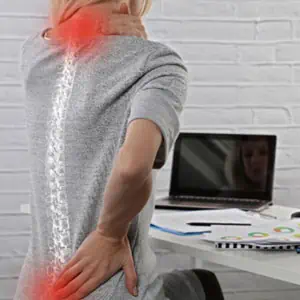Call For A Free Consultation
(386) 388-6260No Recovery, No Fee

The compensation amount for occupational diseases in the workplace is calculated as would a physiological trauma. A key factor is the extent that the occupational disease is substantially contributed to, or exacerbated by, some prior unrelated physiological condition.
In this article, we will look at the following claim factors associated with occupational disease:
There is the theoretical possibility that the employer can try and apportion the loss between the occupational cause only versus non-occupational causes. As a practical matter, it’s rare that this happens with the current state of the law and experts trying to come up with a reasonable opinion about allocation can commonly be tricky. Though, many carriers simply elect to provide the entirety of the compensation so long as the employee can show reasonable time dose exposure with clear and convincing evidence of the link between the condition and the occupational exposure in the workplace.
Employees are provided the same indemnity and medical rights as are physiological point source traumas. However, there’s also an additional benefit to occupational disease sufferers.
If a person exposed to an occupational disease in the workplace has a circumstance that leads to their death within 350 weeks of their last occupational exposure, then the compensation available for other employees otherwise who lose their life in the workplace, is otherwise compensable if the passing of the employee is within 350 weeks of their last exposure to the injurious substance in the workplace.
The biggest impact that severity of disease has in the Florida Workers’ Compensation system regarding an occupational disease is whether the employee can still function doing the work to which they were accustomed to do. If they are no longer able to do so, they may be able to qualify for things such as:
If an occupational disease has rendered you or someone you know, unable to engage in substantial gainful activity meaning not even sedentary work on a full-time basis, contact us to schedule a consultation for more information.
If employees are denied compensation for an occupational disease, they may go through the regular claims process by conferring with the carrier in good faith and filing a petition for benefits with the workers’ compensation judge.
The most significant issue that claimants face in their legal recourse is the fact that the law requires that clear and convincing evidence be presented to show both causation and specific exposure to a harmful substance to support the compensable claim. That’s an issue which typically takes at least medical, and possibly other scientific, conjunctive testimony together.
This is an area that can be very frustrating for those without proper legal representation and unfamiliarity with the correct standards. Having legal counsel with the right expertise, time and commitment makes all the difference in these kinds of claims.
Ideally, the documentation and evidence would be something that the employee can reasonably meter and explain.
For example, one of the clearest and cleanest situations would-be an employee who works around nuclear contaminants and radiation who’s given a dosimeter where they can literally show exactly what they were exposed to day by day, on an hour-by-hour basis. Otherwise, there are circumstances that make it very difficult for an employee to show exactly what they have been exposed to.
Take for example, an employee who is in the process of un-tarping previously fumigated structures that were being treated for termite prevention or eradication. They would have a much more difficult time trying to show to what extent they were exposed and the levels to which they were exposed since no one’s collecting the data.
Between the two previous situations, are some that can otherwise be extrapolated. Like, an expert could go in and do air quality testing in a place of work. If nothing had substantially changed during the time an employee worked there, the expert could reasonably collect data to try and demonstrate and show the mathematical exposure over time. Then, comparing that to the employee’s history and number of hours and days worked in the past in that environment could provide ample evidence.
The timing for reporting a work-related injury is always the sooner the better. As soon as you have any suspicion at all that you may have been exposed to something that would cause an occupational disease or that you believe you’re suffering symptoms of an occupational disease, employees have up to 90 days to make the report.
Medical records and diagnoses are absolutely essential in proving an occupational disease case. Proof of a major contributing cause is essential in a successful workers’ compensation claim. Because this burden of proof falls on the employee, records and diagnoses that show the need for treatment by clear and convincing evidence, are crucial to prove the claim.
Someone’s mere conjecture about causal relationships simply won’t provide enough empirical evidence for a claim to be successful. The medical records, diagnoses and causal opinions within that conjecture, paired with the testimony of medical providers, scientists or other experts, are essential in proving the case. Without these key pieces, it would be literally impossible for a claimant to meet the medical legal standard required to prove occupational causation and need for care and treatment.
For more information on Workers’ Compensation Claim For Occupational Diseases, a free initial consultation is your next best step. Get the information and legal answers you are seeking by calling (386) 388-6260 today.
Call For A Free Consultation
(386) 388-6260